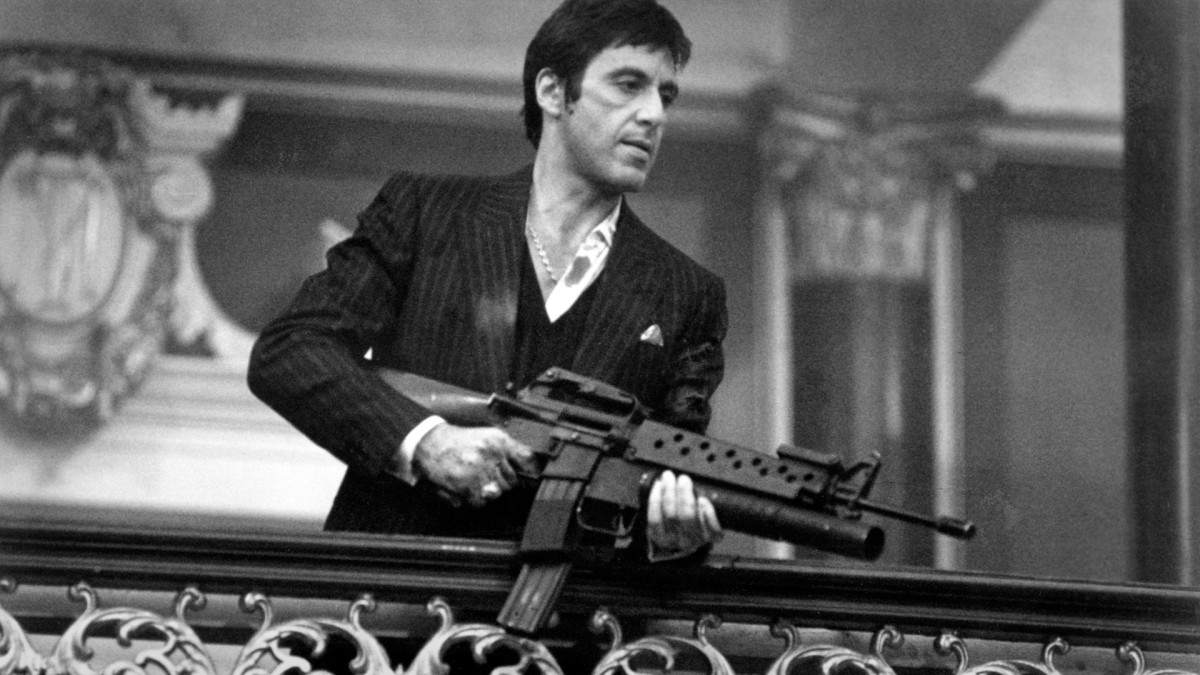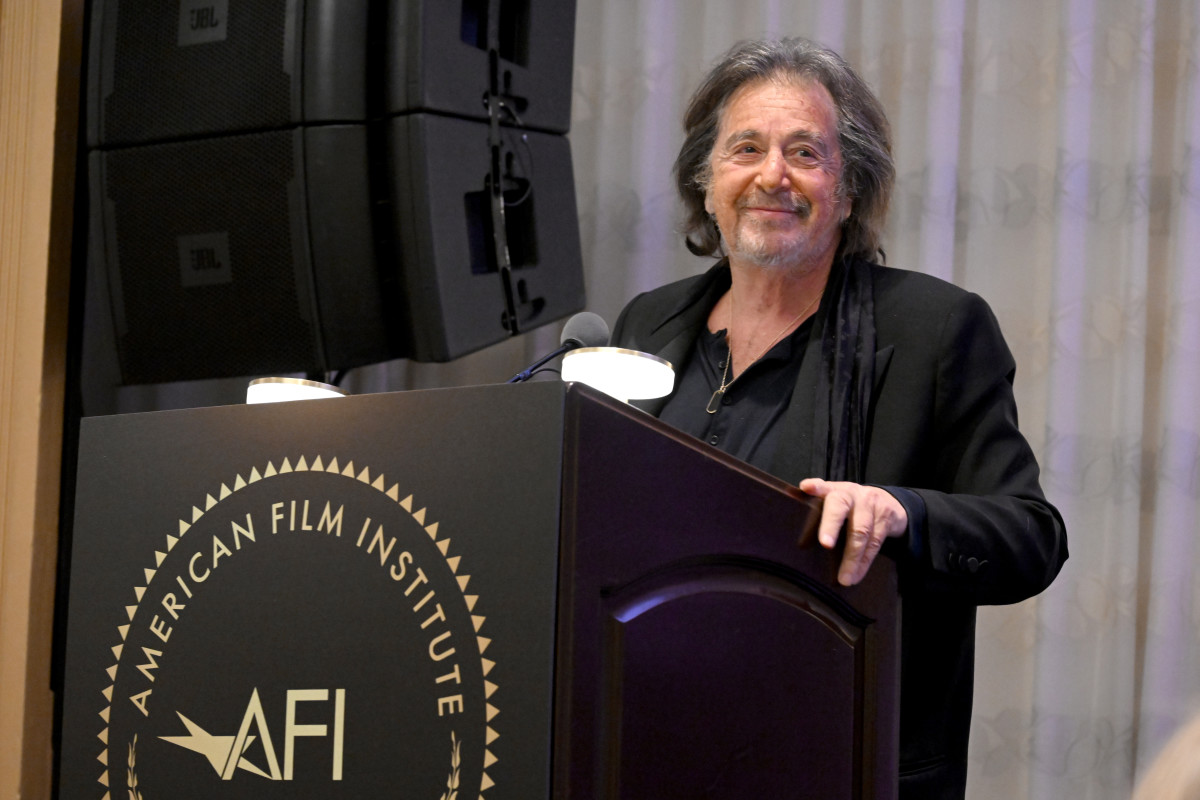
Al Pacino might be one of the most famous and well-respected actors in the world, but he was never motivated by fame. Or money.
So when the now-84-year-old actor was well into his 70s, he was shocked to discover that the $50 million fortune he had amassed over the decades had vaporized.
Pacino has acted in films ranging from The Godfather franchise, Serpico, Scent of a Woman (for which he won the Academy Award), Ocean's 13, Jack and Jill, and dozens more. His films have grossed some $1.7 billion. Yet he claims he often saw very little of that. Indeed, Pacino was reportedly paid $35,000 for the first Godfather film.
"I didn't understand how money worked, any more than I understood how a career worked," he writes in his new memoir, "Sonny Boy." "It was a language I just didn't speak.”
💰💸 Don’t miss the move: SIGN UP for TheStreet’s FREE Daily newsletter 💰💸
Even though he grew up in "near poverty," getting rich was never the point
In an interview with NPR, this week, Pacino shared stories about growing up in a tough neighborhood in the Bronx, New York, and running around with friends who ended up on different paths.
"We lived day to day and in adventure. It's more like ‘Huckleberry Finn.’ When I was telling the story of my young life ... It could be in the Midwest. It could be North, South. It was a neighborhood that was not middle class," he said. "It was almost poverty."
Related: Universal Studios unleashes Disney World Killer
Acting was a refuge. When Pacino began acting, it was in middle school plays. He says, "At some point, I started speaking in a way that was coming from me inside and using the author's words." He was hooked right away. "This was a wonderful way to live. You know, I thought, I mean, this is it. I have this. It doesn't matter what happens - if I become famous, if I eat, I don't eat, if I make money, I don't make money. I was that strongly connected."
When asked why he thought some talented people failed to make it in Hollywood, Pacino always gives the same answer. So many people "want to," he says, but "I had to."

Even Al Pacino isn't immune from falling victim to a scam
In his memoir, Pacino shares that he was paying $400,000 a year to maintain a home he didn’t live in and paid for 16 cars and 23 cellphones.
“The kind of money I was spending and where it was going was just a crazy montage of loss,” he writes in the book. “The door was wide open and people who I didn’t know were living off me.”
Related: Netflix hints at when subscriber rates may rise
One irony here is that Pacino's father was an accountant.
"My father, who I didn’t know really, was an accountant and a very good one, apparently ... but I moved away from that because I was always into my work or other things that had nothing to do with money. 'A fool and his money are soon parted': That saying was very applicable," Pacino said in an interview with The New York Times.
Indeed, Pacino got to a point where, “I wasn’t even signing my own checks — the accountant signed them and I just let them go by. I wasn’t looking and he didn’t tell me how much I had or where it was going,” he writes in his memoir. “And I wasn’t keeping track of who got what. It was all about: Let’s keep this dumb actor going, and I was keeping track of who got what. I was all about: Let’s keep this dumb actor happy, just keep him working."
“I could say I got taken advantage of. I could blame my accountants. I could blame [my manager], who had put me into some sort of tax shelter that went south. I could blame myself, but then I’d have to take responsibility for my own actions.”
Pacino writes in the memoir that he grew suspicious about his accountant because he would not meet with Pacino in person, sending his "minions" instead.
When he learned he was broke, Pacino writes he had to "change his budget" and the crooked accountant ended up going to prison, but that didn't help Pacino recover any of his fortune. Instead, he had to figure out how to earn a living.
Being 70+ and broke forced Al Pacino to reassess his choices
For most of his career, Pacino preferred to play characters he could connect with and relate to, with little regard for the paycheck. After he lost his money, though, he took virtually any role offered. He says he acted in“some really bad films that will go unmentioned, just for the cash.”
Related: I didn't make this money move, but my kids did and yours should, too
(This Dunkin' Donuts commercial is a must-see.)
He also decided to start charging for work he had historically done for free. In the early 2000s, Pacino often traveled to universities to talk to students about his career and his favorite books and playwrights. Eventually, he decided to hold seminars for the public too, and found that it paid well enough to get him through the month. “Audiences came because I still had popularity,” he writes.
Ultimately, Pacino says he always trusted that he would be able to put himself back together and “never despaired” the financial rollercoaster he experienced.
He certainly made things harder on himself by not understanding, or at least paying attention to, where his money was going, let alone where it was invested.
Pacino also demonstrates a remarkable level of resilience. He experienced significant loss, yet picked himself up and worked to regain some sense of stability.
“They have that expression, ‘You can’t look back,’” he writes. “Well, I look back and I love it. I love what I see. I love that I existed.”
Related: Veteran fund manager sees world of pain coming for stocks







